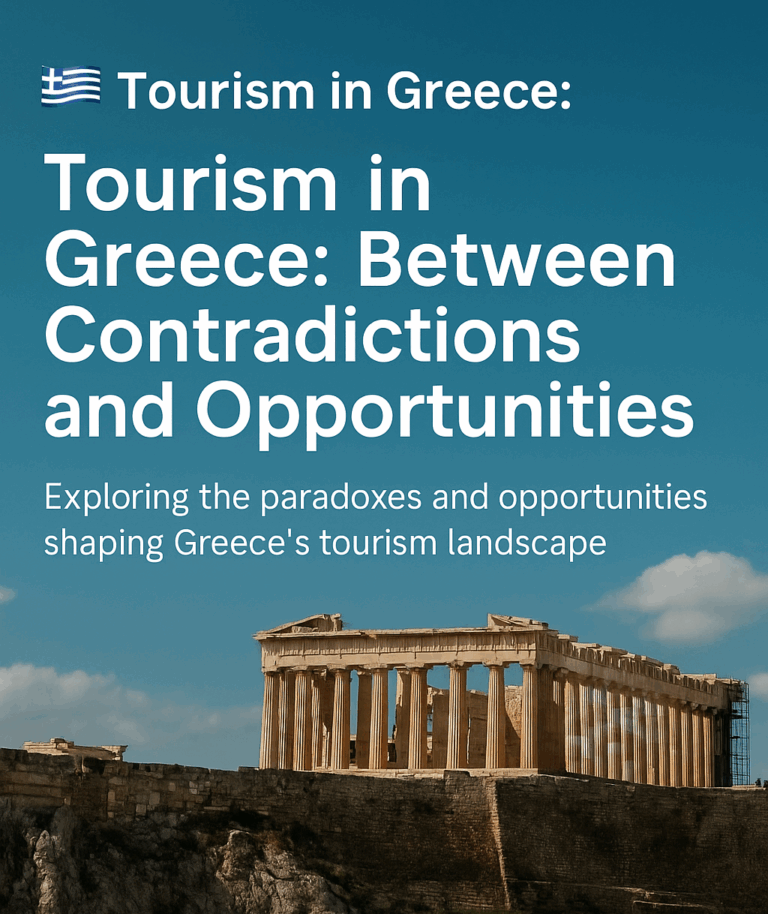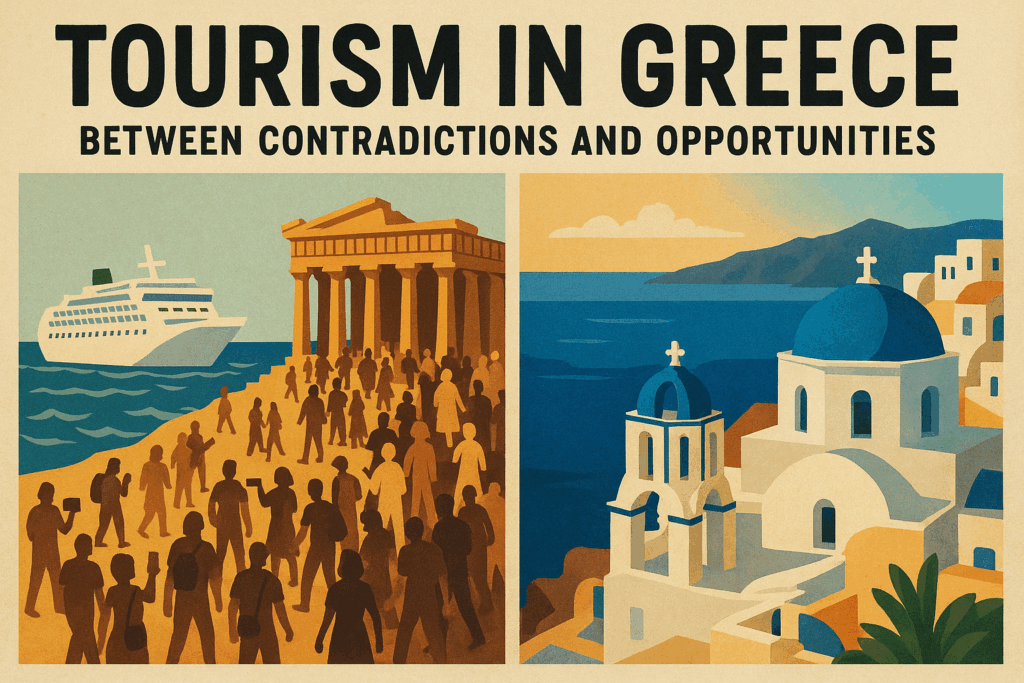Greece is a country whose identity is deeply tied to tourism — yet, every season, new paradoxes emerge that reflect deeper social, economic, and political challenges. With only 8% of Greeks reportedly able to afford summer vacations, tourism, once seen as a national right, is gradually turning into a luxury reserved for the few. And this reality affects much more than the hospitality sector.
Internal Tourism Is Not a Luxury — It’s a Necessity
Encouraging domestic tourism isn’t just about equality or social cohesion. It’s an essential economic and social lever. When low-income workers and pensioners can access vacation opportunities, the benefits are widespread: local businesses flourish, seasonality is balanced, regional economies diversify, and a sustainable sense of well-being is fostered across the population.
Public support programs, subsidies, targeted digital platforms, and regional incentives must be designed with precision to ensure that holidays are accessible — not aspirational — for those who need them most. If internal tourism declines, we all pay the price.
Who Are Our Visitors — And What Do They Bring?
Greece attracts millions of visitors each year — but not all tourists have the same economic or cultural impact. In Northern Greece and areas like Halkidiki, there’s a visible shift: large groups arrive with limited local spending, often confined to all-inclusive packages or quick stops. Meanwhile, small local businesses struggle to capture meaningful value.
What Greece needs is not more tourists, but better-aligned tourism: visitors who are engaged, informed, and willing to contribute to the local economy. This means promoting cultural tourism, nature tourism, digital nomads, gastronomy and history — and rebalancing the visitor profile with real benefit to the local ecosystem.
How Technology Can Shift the Landscape
Digital solutions are no longer optional in tourism — they are structural pillars. Smart booking systems, AI-powered analytics, dynamic destination management, and real-time resource monitoring can optimize both supply and demand. Personalized content, multilingual information kiosks, local apps for small businesses, and inclusive platforms for internal tourism are not luxuries — they are tools for economic and social resilience.
But most importantly, digital technology can act as a bridge between people. Between the host and the traveler. Between the state and its citizens. Between fragmented markets and unified opportunities.
From a Country of Tourism to a Country with Vision
Tourism is neither a panacea nor a curse. It is a powerful tool — and like every tool, its impact depends on how it’s used. If Greece wants to evolve from a seasonal destination into a sustainable tourism model that uplifts all its people, it must prioritize:
- Equitable access to travel for its own citizens
- Rebalancing the tourist profile with meaningful, value-adding visitors
- Empowering the entire sector through smart, inclusive digital platforms
We don’t need more ads. We need more vision. And that starts with treating tourism not as a privilege, but as a shared national opportunity — for everyone.



